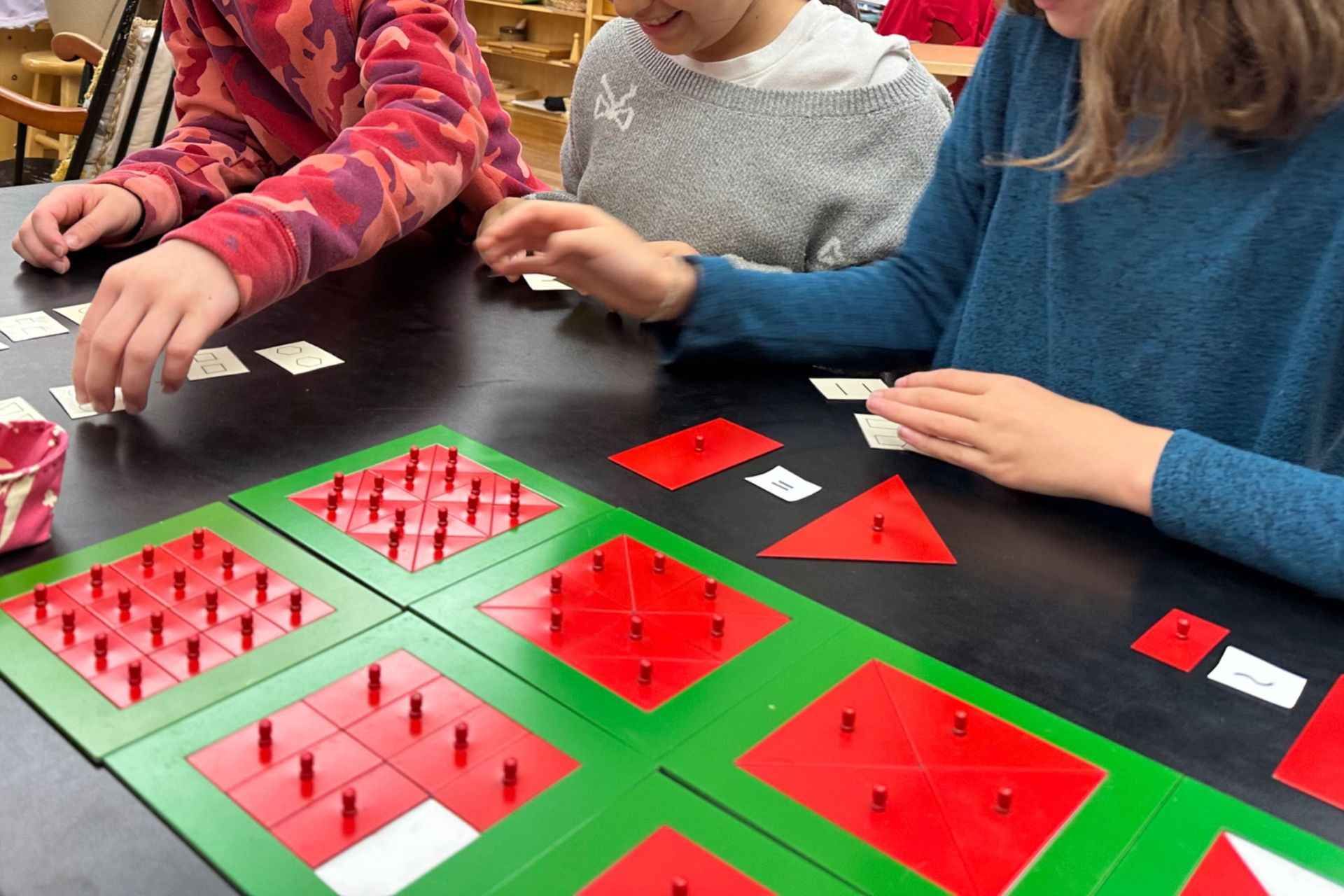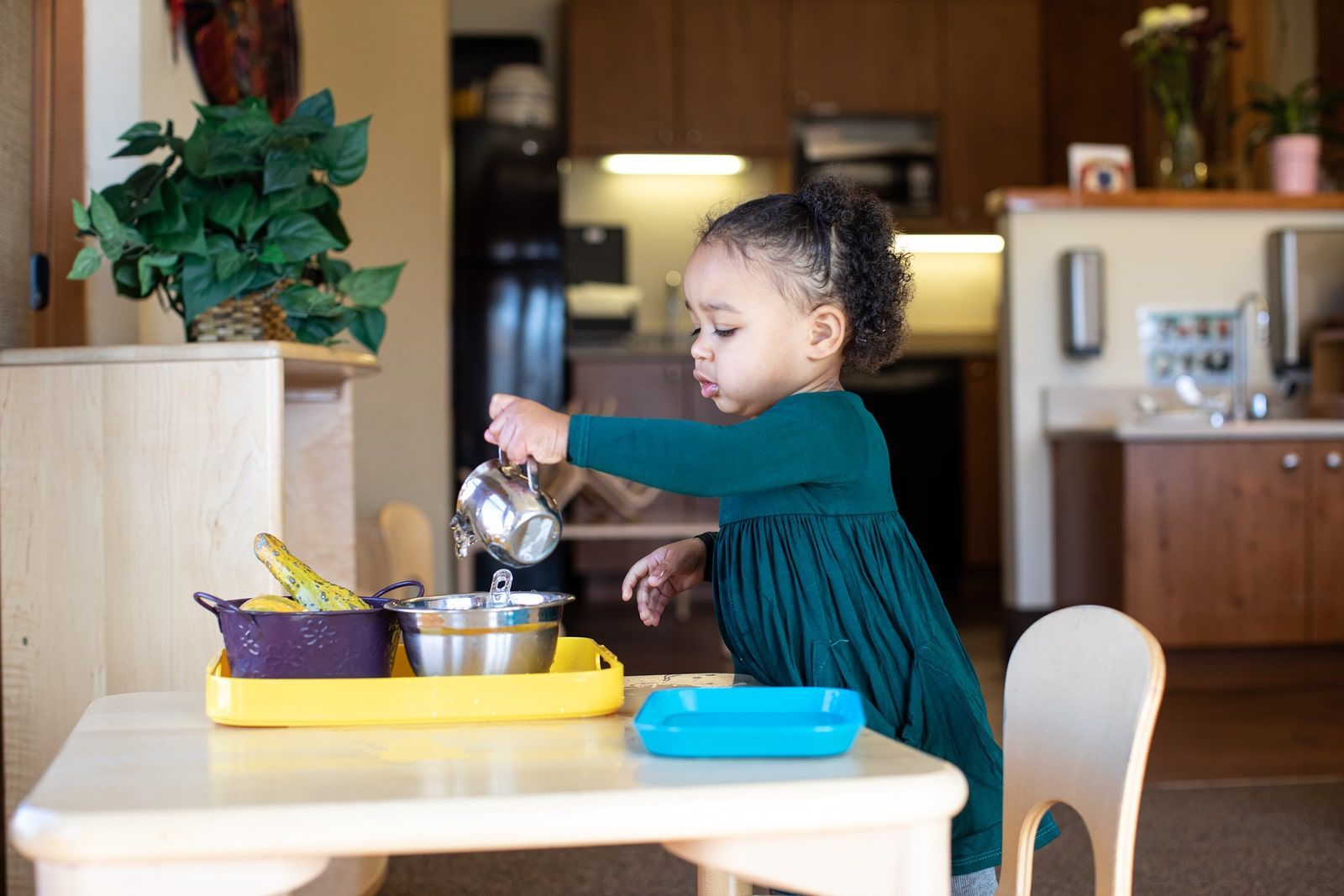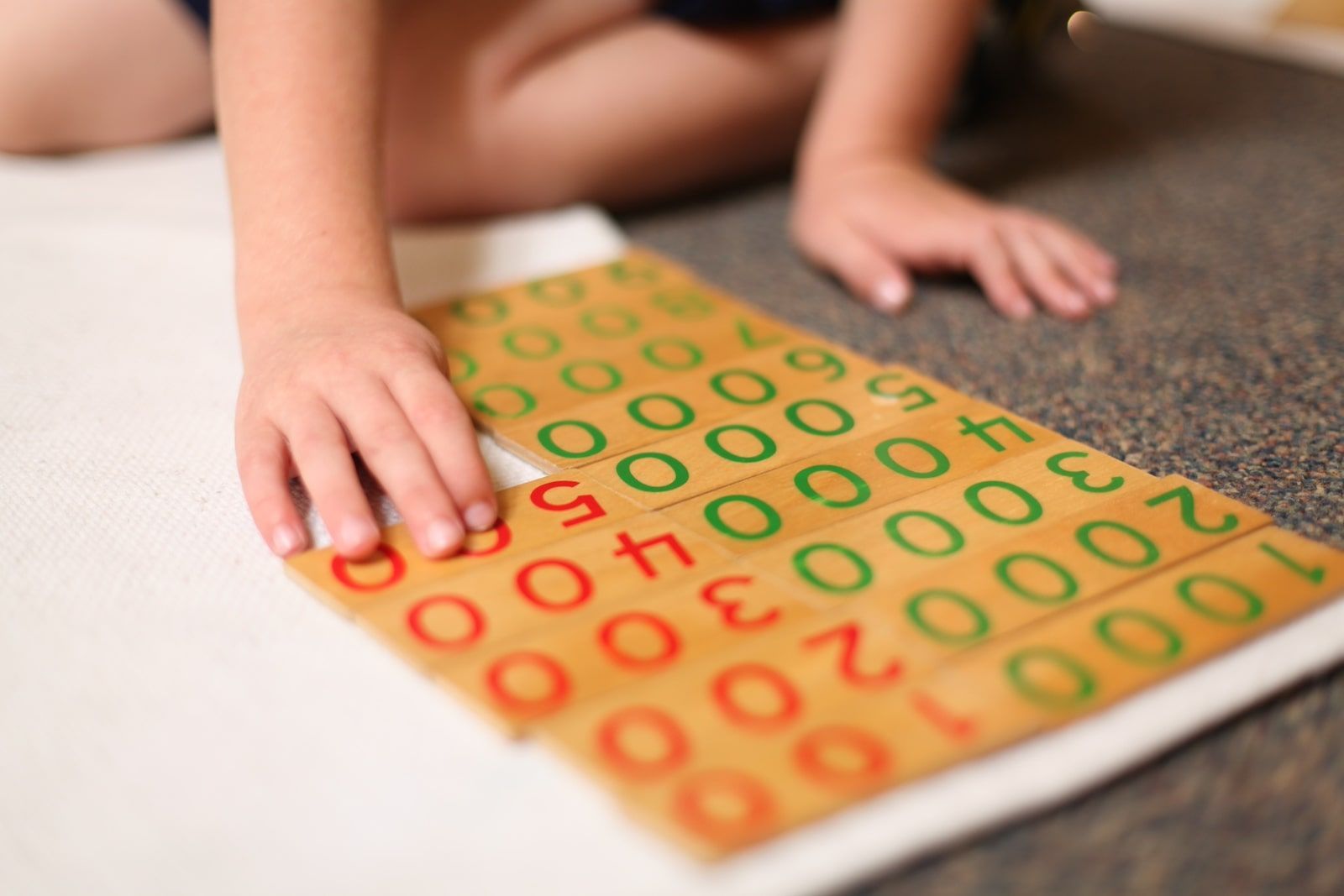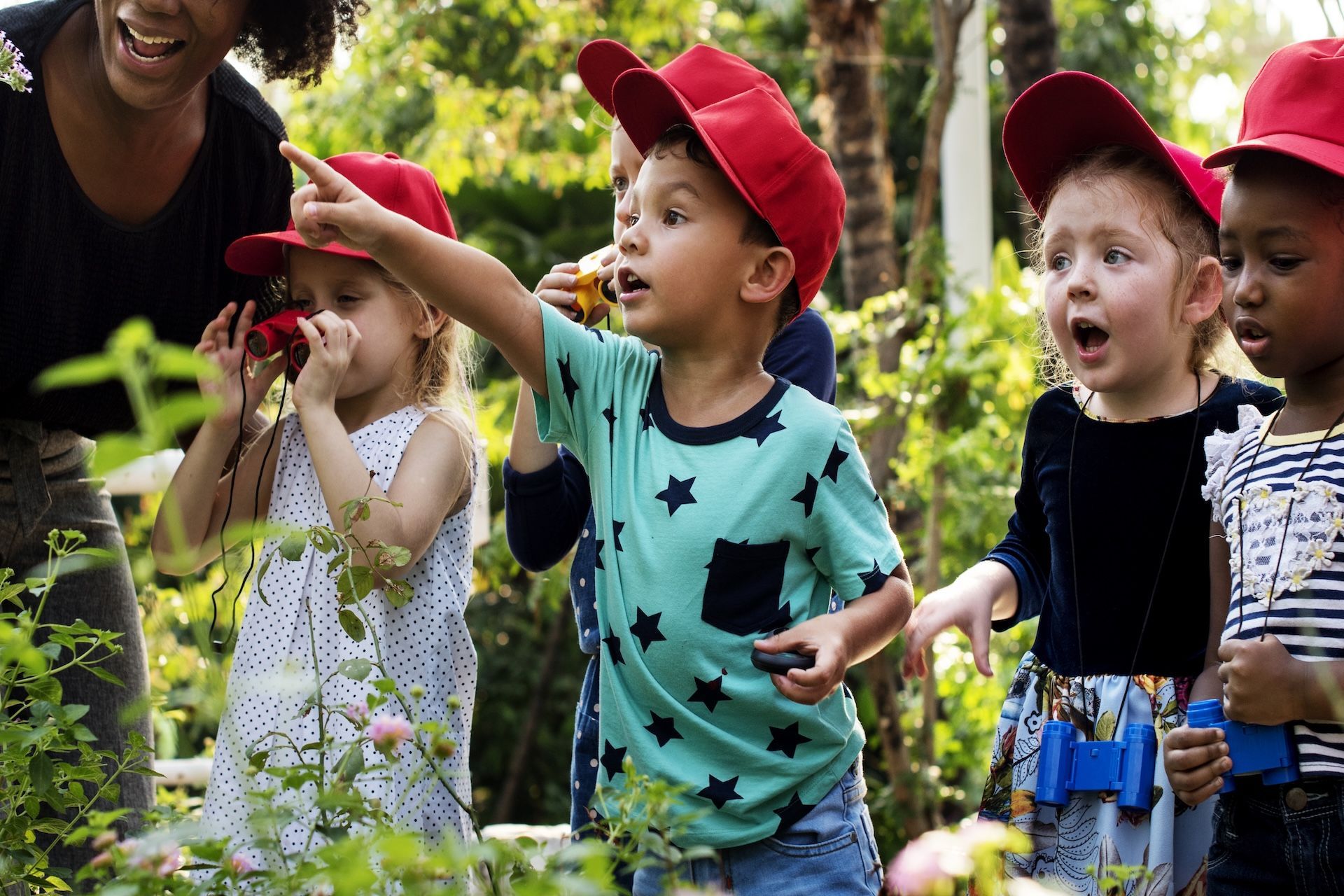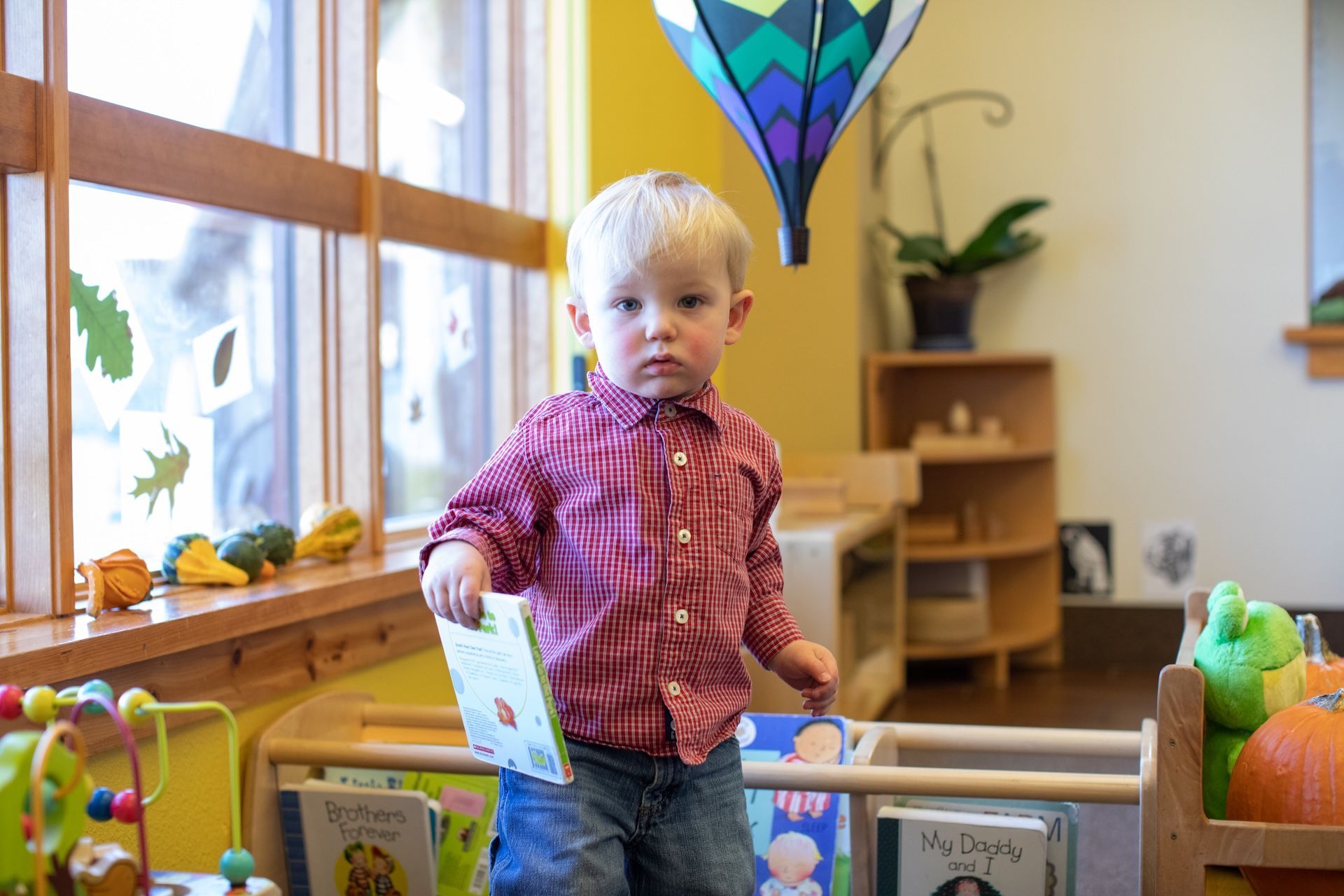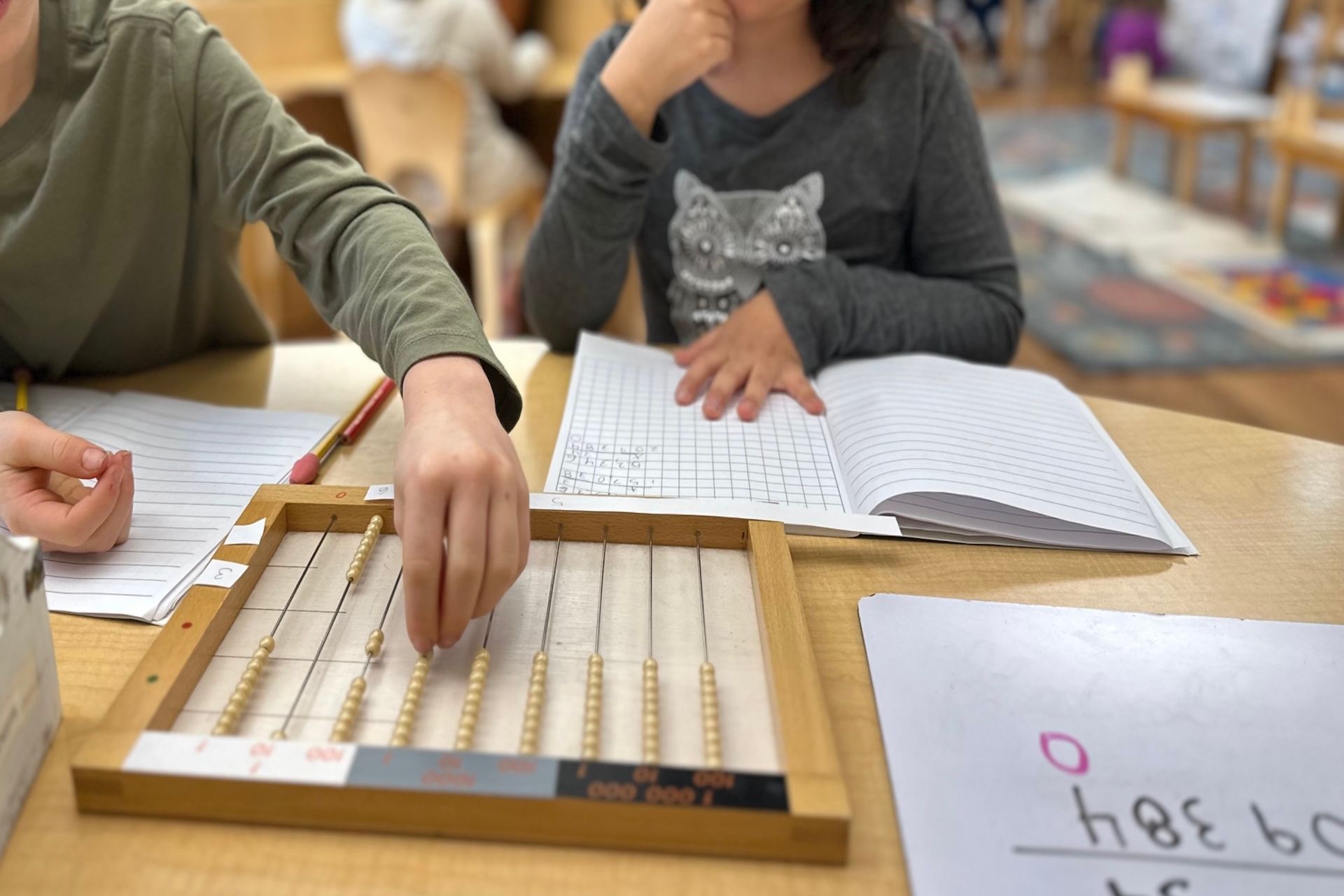On the Topic of Competition
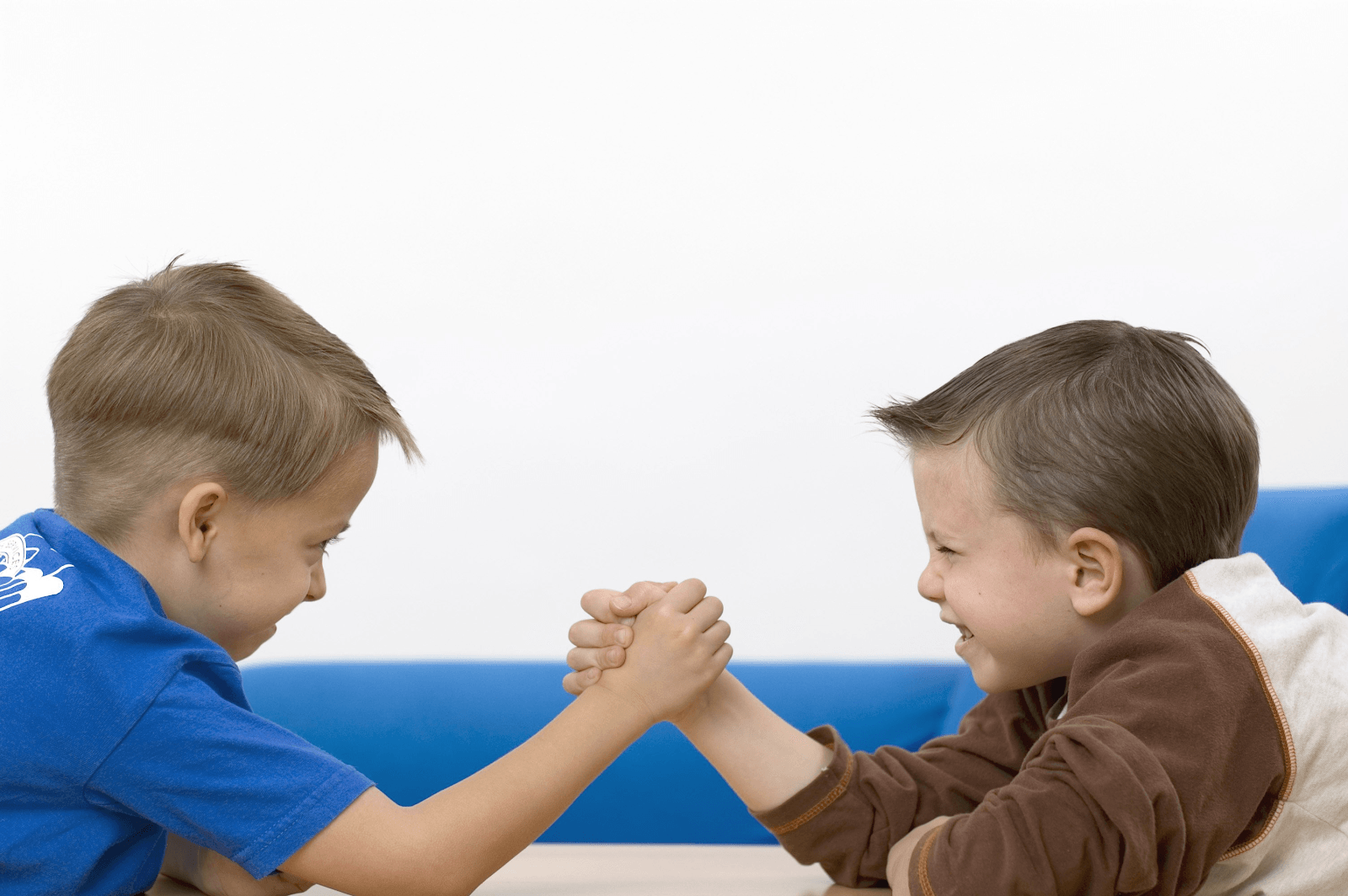
You may have noticed that in Montessori schools, we do not typically encourage competition between children. Our lack of traditional grading is one obvious marker of this approach, but you will notice that the lack of peer competition threads itself pretty much throughout the entire program. This is quite intentional, and we work hard to give children a foundation built on competition with oneself, rather than with others.
It is important to note, however, that a Montessori education does not leave children unprepared for “the real world”. We recognize that competition is a part of life for many, and we work hard to cultivate characteristics that will allow children to engage in healthy, fulfilling competitive experiences.
Curious to learn more about what we do? In this post we not only explain why we favor internal motivation, but what we do to help nurture well-rounded and adaptable children.
Internal versus External Motivation
One of our core values as Montessorians is that we believe intrinsic motivation is far more powerful than external rewards. This has been the foundation of our educational model for over a century. In recent years, studies have backed the theory that we are most successful when we are driven by our own internal motivations, not perceived rewards (like prizes, grades, or money). Information on one such study can be found here.
How We Prepare Children for Healthy, Real-World Competition
Montessori schools can sometimes feel like a bit of a protective bubble. As educators, we need to recognize this and make sure we are preparing children for what comes next. Montessori students tend to be highly successful when they eventually move on to more traditional schools, regardless of when that might be. The following character traits are cultivated throughout a child’s time with us, and we believe this is part of what it takes to create successful and fulfilled people in the long run.
Self Confidence
We all like having the ability to believe in ourselves, and we do whatever we can to guide our children toward feeling the same way. From a very young age, Montessori children learn to do things for themselves. They are respected by the adults in their lives and their personal autonomy is honored.
When a toddler sweeps up her own crumbs, she feels it. When a four-year-old makes his own sandwich for the first time, he feels it. When an eight-year-old solves a challenging long division problem, they feel it.
We build routines and structures that allow children to accomplish big things, and to revel in the feelings of self-accomplishment. After many, many of these experiences, children develop a strong sense of self, and an “I can do it” attitude.
Resiliency
In Montessori classrooms, we know what children are capable of. We know that traditional settings often expect less than what is developmentally appropriate for them. When our students feel driven to work hard on challenging tasks, failure becomes an early and welcome part of their experience.
As adults, we often equate failure with negative outcomes. In reality, failure is nothing more than a learning experience, and we can use that experience to guide us toward mastery. When following an internal desire to learn about or accomplish something, children welcome these necessary building blocks. They see them for what they are: another motivator to keep pushing forward.
Independence
If it’s not already obvious, our students are encouraged to be as independent as they are able to be, both according to their age and their individual needs. This means they do not need to rely on others to get started on or execute tasks; they have plenty of experience confronting challenges independently.
Having a strong sense of independence allows us to take on leadership roles. It brings us towards self-awareness and trusting our own abilities. Our independene can encourage us to block out unimportant details and distractions, leading us to focus clearly on the task at hand.
Cooperation
While independence is critical to our success, it is equally valuable to be able to work cooperatively with others. Many competitive situations involve teams of people working together toward a common goal, and this is something Montessori children get lots of practice in.
We recognize that one of the hallmarks of the elementary age (6-12) is that children are highly motivated by social interactions. To this end, we carefully craft the classroom environment to support this need. Children are given lessons in small groups, and even the furniture is arranged for a variety of seating options. If you were to observe in an elementary classroom, you would notice most of the children clustered in small groups working together, and this inevitably leads to many opportunities to practice important skills like compromise, flexibility, and advocacy.
Self Advocacy
Montessori classrooms have a bit more flexibility in terms of daily scheduling than most settings. One critical element that must remain is the three-hour work cycle in the morning. Beyond that, our guides are able to schedule class meetings regularly, or any time conflict arises. We teach our students skills they need to navigate all sorts of interpersonal situations, including how to advocate for themselves.
Another interesting aspect of a Montessori classroom is that even young children have frequent opportunities to present their work and ideas to their classmates. Being able to stand up and speak in front of a group of people from the time one is six years old seems to have a profoundly powerful effect on how we are able to convey, with confidence, our ideas and feelings.
Did you know that there are a number of well-known figures who attribute their Montessori education at least partially to their success? In this video, NBA MVP Stephen Curry shares how his own Montessori education gave him the confidence necessary to become the successful adult he is today.


